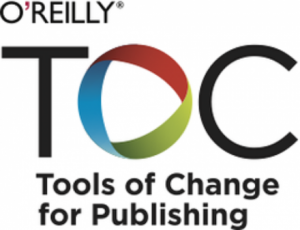
Tools of Not-Enough Change
Two weeks ago, I presented at and attended the 2012 O’Reilly Tools of Change for the Publishing Industry Conference. (You can find a description of the panel I moderated here.) It’s my second time at “TOCCON,” as it’s known by the cognoscenti (geekoscenti?), and I noted again that this is more of a conference for production and process than for editorial types. With workshops and panels named things like “Hippos in Ballet Shoes, Or Greyhound on the Track? Applying Agile Methodologies to Book Publishing” and “Breaking thePage: Content Design for an Infinite Canvas,” TOCCON is a publishing developer’s dream–and lots of interesting work gets accomplished in three busy days.
However, one thing that did not get accomplished, and that I was paying particular attention to, is the issue of discoverability. Allow me to translate for the readers out there (including myself): There aren’t a lot of programs devoted to helping us figure out what to read next, and this is a problem. It’s not simply a problem for restless readers looking for a great book–it’s a problem for publishers who are trying to get their latest titles in front of those restless readers, and thus a problem for authors who know that they have an audience as yet, well, undiscovered.
Given the number of books published each week in the United States (about 3,500, according to the American Association of Publishers), books which are spread out among so many types and genres, this is a significant dilemma. Even if book sections and review pages hadn’t shrunk drastically over the past decade, there’s no way even the most robust book-review pullout could support more than a tiny slice of that output.
There’s also no way any bookstore–even the biggest big-box–could handle all of those books. While the biggest online retailer might stock all of those books, even its powerful algorithm can only show a few titles at a time for consumers (they might be better off visiting their nearest independent bookseller, where most of the staff will have dozens of recommendations,as well as ideas about where to go for more).
We know where to go to buy books, even if we quarrel about the best place to do so. We know what we’re willing to pay for books, even if not every outlet obliges with our price of choice. But where can we go to find out what to read?
I have some answers to that question, which include the above-mentioned handselling, a couple of publications, and dependable Twitter friends. However, I was surprised, at a conference as heavy with smart developers and pundits like TOCCON, not to hear more about this issue. Have we become resigned to our imperfect methods? Is there something waiting in the wings? Or is there simply no easy way to sort, compare, and display books for readers?
If that’s so, what do we do? I’d love to hear about your solutions. Or workarounds. Or even frustrations with the system as it stands.








